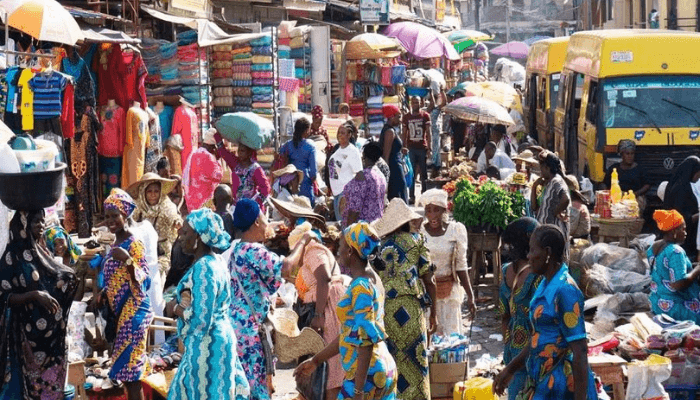
Nigeria’s new minimum wage of N70,000 may not be sufficient to sustain a household of three, according to a report.
Despite the 133.3 percent increase from N30,000 in 2019, the wage fails to cover the basic needs of an average Nigerian family.
An analysis by BusinessDay, using data from the National Bureau of Statistics, reveals that the monthly cost of a healthy diet and transport for one person is N60,518, which is 86.5 percent of the new wage.
This implies that it costs N121,036 to feed a family of two and N181,554 for a family of three.
Oluebube Nwosu, a consumer goods analyst at Vetiva Capital, pointed out that the N70,000 wage is below the parity of the last minimum wage when it was enacted in 2019.
“It should be about N80,000 at least, as the consumer price index has risen 160 percent since then,” he said.
The new wage was announced by President Bola Tinubu on July 18, following contentious negotiations between organized labor and the Federal Government.
The Nigerian Labour Congress and Trade Union Congress initially demanded a new monthly minimum wage of N615,000, which was eventually reduced to N494,000 before settling at N70,000.
The labour unions accepted this new wage with the condition that it would be reviewed after three years.
Tobi Ehinmosan, a macroeconomic and fixed-income research analyst at FBNQuest Merchant Bank, remarked that the new wage is not a living wage given the current economic realities.
“Prices are fast accelerating and stretching consumers’ wallets. While the upward review of the minimum will ease the disposable income of households, the soaring prices of goods and services mean that individuals can’t afford necessities,” he said.
Further analysis indicates that the N70,000 minimum wage is still the lowest among the top 10 African economies.
Nigeria, home to the largest population of youth in the world, has experienced two recessions in the past eight years, weakening consumers’ purchasing power and increasing poverty levels.
The inflation rate in Nigeria has surged to a record high, driven by government reforms such as the removal of petrol subsidy and naira devaluation.
According to the NBS, the headline inflation quickened for the 17th straight time to 33.95 percent in June, with food inflation increasing to 40.53 percent.
Ebunoluwa Adeleke, a mother of three from Lagos, said rising food prices have forced her to reduce the quantity of food she sells.
“We have been eating well because I sell food, but not as often as before. Sometimes, I clean people’s apartments in the evening to earn extra income,” she said.
Charis Edward, a trader from Ogun, echoed similar sentiments, saying: “I sell pap and groundnut, but I had to add a point-of-sale business because of my four children.
“My husband is a bus driver and often stays home to assist with the twins we had in January. We usually eat only once a day.”
The new minimum wage, despite its increase, appears to fall short of meeting the essential needs of Nigerian families amid rising living costs and economic challenges.
